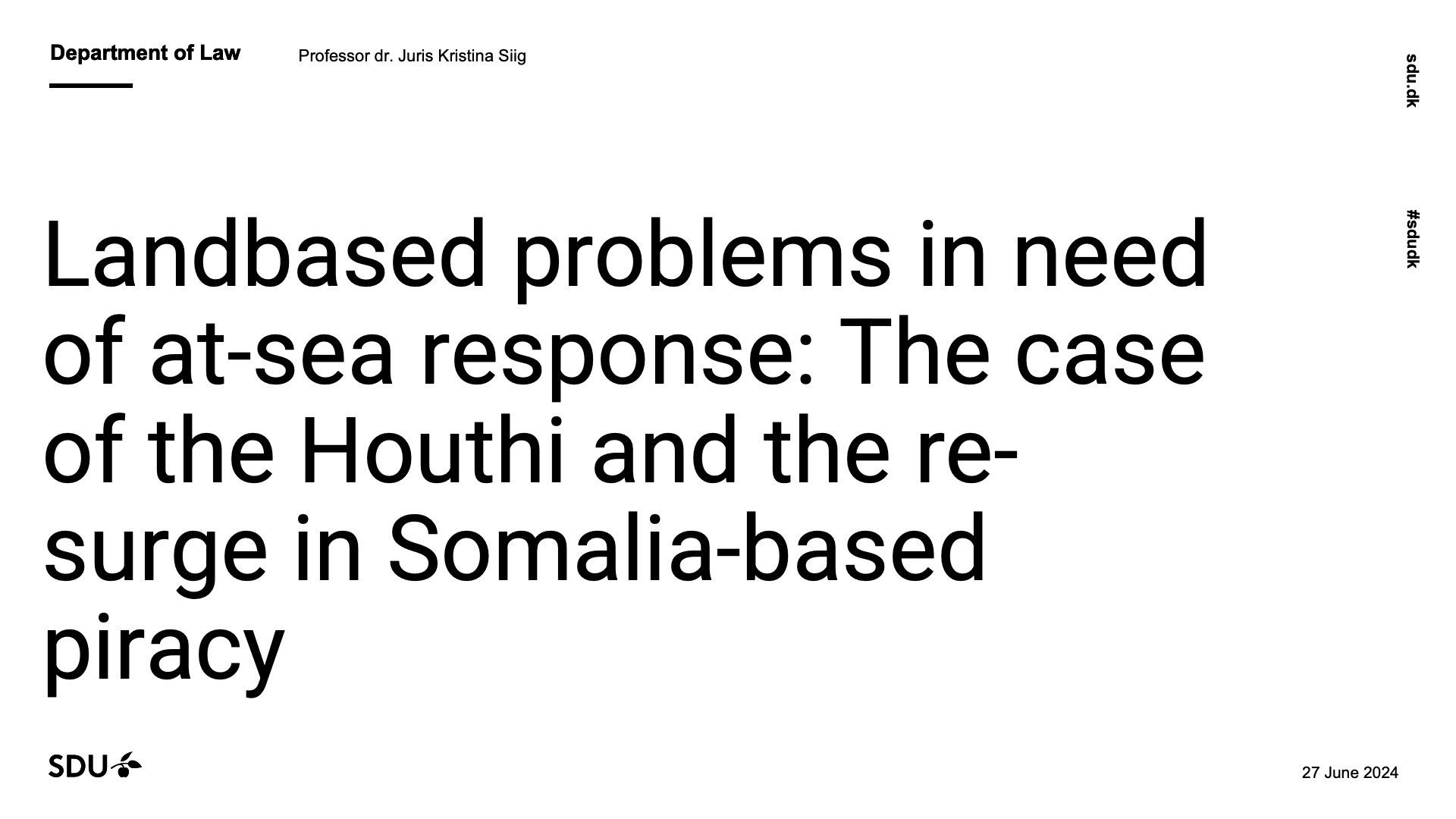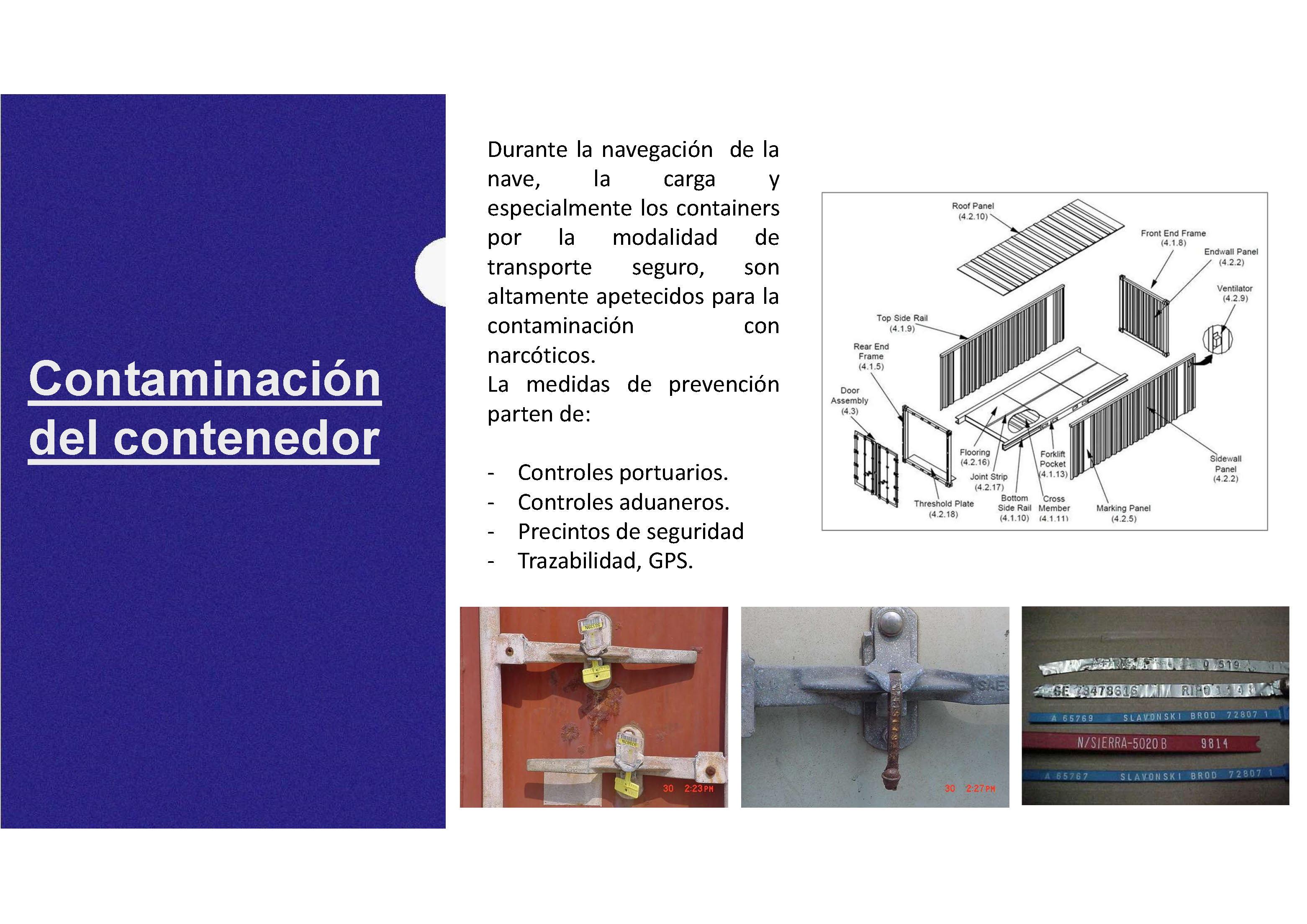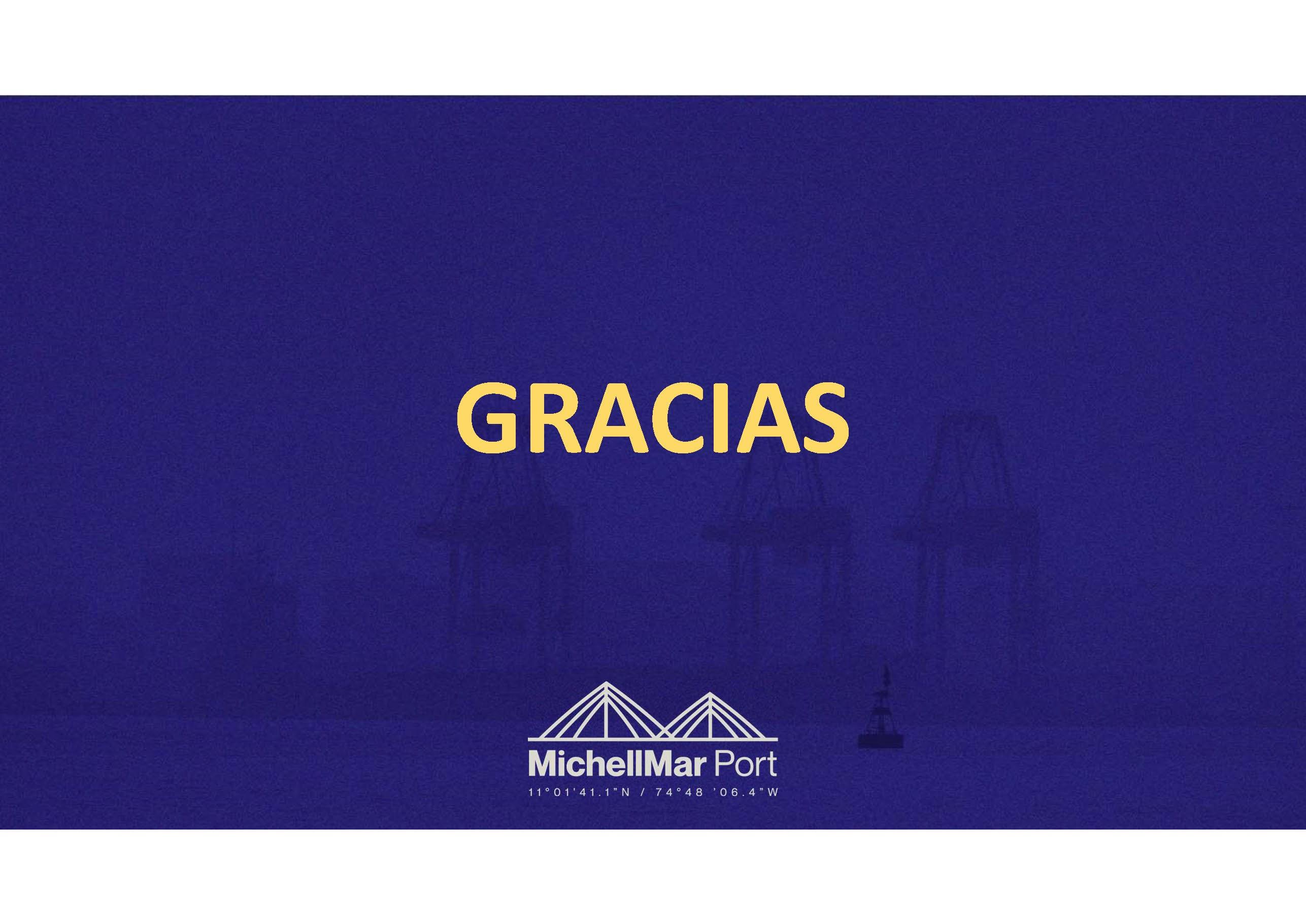COPE° WEBINAR


COPE° WEBINAR



TIME TOPIC MODERATOR
9:00 – 9:15
Peace Through Prosperity: Normalizing peace and security through economic development
9:15 – 9:30 Main situations affecting safe navigation in the Americas
9:30 – 9:45
9:45 – 10:00
Pirates and terrorist attacks in the red sea: Implications beyond Europe
Estrategias de Protección Marítima en la región latinoamericana
10:00 – 10:15 Aspectos técnicos relevantes para mejorar la seguridad marítima en el caribe
10:15 – 10:30 Buenas prácticas, contratos y optimización de la seguridad marítima
Eric R. Dawicki
President, Northeast Maritime Institute
10:30 – 10:40 Conclusions
Jakob P. Larsen
BIMCO / COPE°
Kristina Siig
Scandinavian Institute of Maritime Law
Lisbeth Laurie
Organization of American States CICTE
Mauricio Ochoa
Maritime Expert
Javier Franco
Director Logistics and Supply Chain
Observatory / Franco & Abogados
Hannah Dawicki
COPE°
Enhancing maritime trade and commerce using regional and international rules-based order
Eric R. Dawicki President, Northeast Maritime Institute



• Importance of economic development in promoting peace and security
• Economic growth creates job opportunities, reduces poverty, and stabilizes societies
• Focus on maritime trade and commerce
• Maritime trade is a crucial component of global commerce and regional cooperation


• Economic growth as a pathway to peace and stability
• Investments in infrastructure, education, and health lead to social stability
• The role of trade and commerce in fostering regional cooperation
• Trade agreements and partnerships enhance mutual benefits and interdependence

• Key to regional economic development
• Ports and shipping lanes facilitate the exchange of goods and services
• Enhances connectivity and economic integration
• Strengthens ties between neighboring countries and promotes collective security



• Importance of adhering to international laws and agreements
• Ensures fair competition and respects sovereignty
• Promoting fair and transparent trade practices
• Reduces corruption and enhances trust among trading partners


• Development of the National Maritime Security Plan post-9/11
• Aimed to secure maritime borders and prevent terrorism
• Role in planting the seeds of reconciliation
• Fostered trust and cooperation among previously conflicting parties
• NMI's Experience:
• Contribution to the plan's development
• Provided expertise and resources for plan implementation
• Key outcomes and impacts
• Enhanced maritime security and promoted economic growth


• Obama Administration's role as a regional partner
• Focused on strengthening economic ties and security in Central America
• Efforts to establish investment and support economic development
• Initiatives aimed at addressing root causes of migration and instability
• Specific Initiative:
• 2016 assistance package for Central America
• Requested US$1 billion to support economic and security programs
• Objectives and allocations
• Funds allocated to economic development, law enforcement reform, and anti-corruption measures


• Allocation of funds to various sectors
• Emphasis on economic development, institutional reform, and security
• Emphasis on addressing root causes of violence and lack of opportunity
• Programs targeting poverty reduction, job creation, and education
• Comparison with Previous Aid Packages:
• Shifts in focus towards economic development and institution-building
• Previous packages focused more on drug interdiction and security forces


• Focus on trade promotion, energy development, education, and youth job programs
• Economic Support Fund (ESF):
• Supports civil society, crime prevention, and management of public funds
• International Narcotics Control and Law Enforcement (INCLE):
• Role in supporting civil society and human rights
• Funds used for anti-narcotics, law enforcement, and human rights programs
• Department of Defense (DoD) Funding:
• Allocation for counter-narcotics and security assistance
• Includes training, intelligence, equipment, and support for military and police bases


• Senate and House proposals and their implications
• Differences in fund allocations and conditionality measures
• Final Aid Package:
• Conditionality and accountability measures
• Emphasis on anti-corruption, institutional reforms, and human rights
• Expected impact and future outlook
• Enhanced economic stability and reduced migration pressures


• Effective strategies for linking economic development to peace
• Comprehensive and balanced aid packages addressing multiple sectors
• Importance of comprehensive and balanced aid packages
• Ensuring funds are allocated to both security and development
• Future Directions:
• Enhancing regional partnerships
• Building stronger ties with neighboring countries for mutual benefit
• Continued emphasis on economic and institutional development
• Focus on sustainable growth and capacity building


• Economic development is crucial for peace and security
• Maritime trade and international cooperation play significant roles
• Final Thoughts:
• Importance of continued investment in economic development
• Long-term stability and prosperity depend on addressing root causes of conflict

Jakob P. Larsen
BIMCO / COPE°










Kristina Siig
Scandinavian Institute of Maritime Law










Lisbeth Laurie















Mauricio Ochoa Maritime Expert












Javier Franco
Director Logistics and Supply Chain Observatory / Franco & Abogados














hdawicki@nmi.edu

